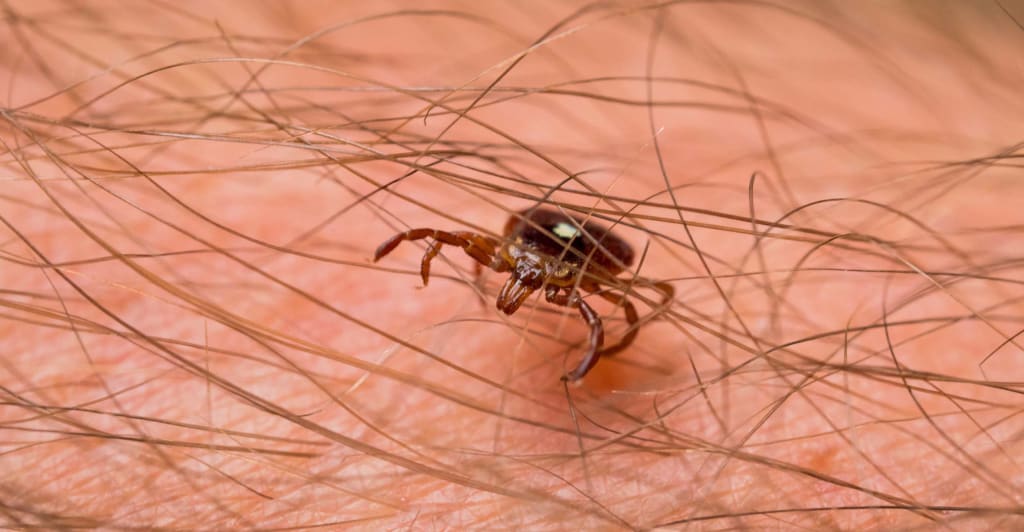
In the summer of 2019,
a bull was found dead on a farm in North Carolina.
Dead by exsanguination.
Which means it was drained of blood.
The culprit wasn't real-life vampires,
but something just as frightening:
an army of more than 1,000 Asian longhorned ticks.
But here's the thing.
As scary as that sounds,
Asian longhorns are just one
of about 90 tick species found in the US.
All of them suck blood, all of them can carry disease,
and all of them are incredibly difficult to kill.
The Asian longhorned tick is truly a villainous pest.
Not only is it an invasive species,
but it can also clone itself over and over again.
Since it was first reported in 2017,
it's crawled its way to at least 12 states.
Ticks are what we call sit-and-wait predators,
where they climb up to the top of the blades of grass
and they put their arms out.
And at the top of their arms they have little sticky pads.
And those pads will get attracted to this.
And this is how they get stuck on your pants
or on other animals in the wild as well.
We call that questing or host-seeking.
Yeah, ticks are literally on a quest for blood!
And they've mastered the art of extracting it,
all without getting caught.
After a tick crawls onto you,
it sneaks into a concealed crevice, like your armpit.
And after that, it uses two horrifying hooklike structures
to tear into your flesh and keep from falling off.
Then, they insert what is basically a straw
covered in spikes, like a piece of barbed wire,
which makes them even harder to remove.
And this sounds like it would hurt, a lot.
But ticks have another trick up their sleeve,
or rather their mouth.
Saliva.
It's a tick's ultimate weapon to avoid detection.
It contains pain-numbing properties,
so you don't notice them
even as they stab and rip your flesh.
Plus, it suppresses your immune system,
so the wound is less likely to get red or itchy.
That's why ticks can stay in you undetected for days,
even as they grow to several times their normal size.
And if you do find a tick in time to get it off,
it won't die easily.
ticks can survive
for as long as two years without a blood meal.
And they're also masters of the elements.
They can tolerate long periods of drought,
and some species can survive underwater
for two to three days.
So, yeah, flushing them down the toilet or sink
likely won't kill them.
If you put them in the sink, sometimes
they'll crawl back out of the sink.
Now, all of this wouldn't be such a big problem
if it weren't for the diseases they carry.
In the US alone,
they transmit at least 16 diseases to humans.
That's more than any other insect, including mosquitoes.
Lyme disease alone, for example,
infects an estimated 300,000 Americans each year.
And it's only getting worse.
In 2004, there were about 23,000 cases of tick-borne disease
reported to the CDC.
But by 2017,
that number had almost tripled to nearly 60,000.
But what isn't clear is why.
Why ticks and the diseases they carry are spreading.
Though Tufts and other scientists say
that climate change is at least partly to blame.
We've been having pretty mild winters,
which can promote survival,
overwintering survival of hosts and of the vectors,
which also will lead to new expansion.
Whatever the reason, there are tons of ticks
Pretty much everywhere.
So, the next time you go for a hike,
keep these tips in mind
Stay on the trails, where ticks are less likely to hang out.
Wear bug spray; preferably something with DEET.
Tuck your pants into your socks,
so nothing can crawl onto your legs.
Wear light clothes, so anything that does get on you
is easy to spot.
And, of course, always do a tick check
once you're out of the woods.





Comments
Leighton Green is not accepting comments at the moment
Want to show your support? Send them a one-off tip.